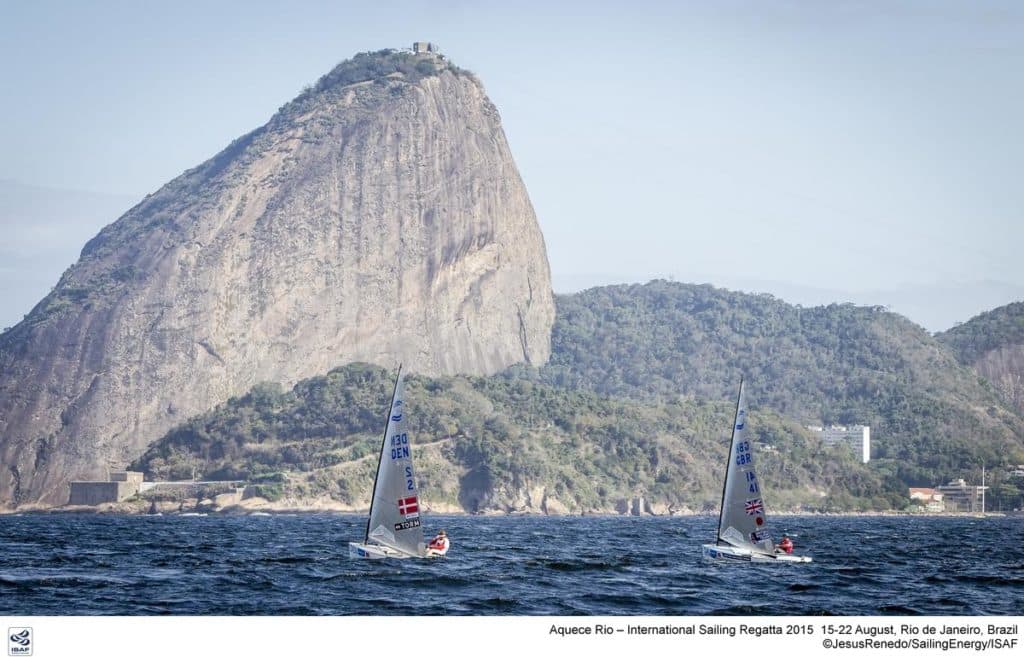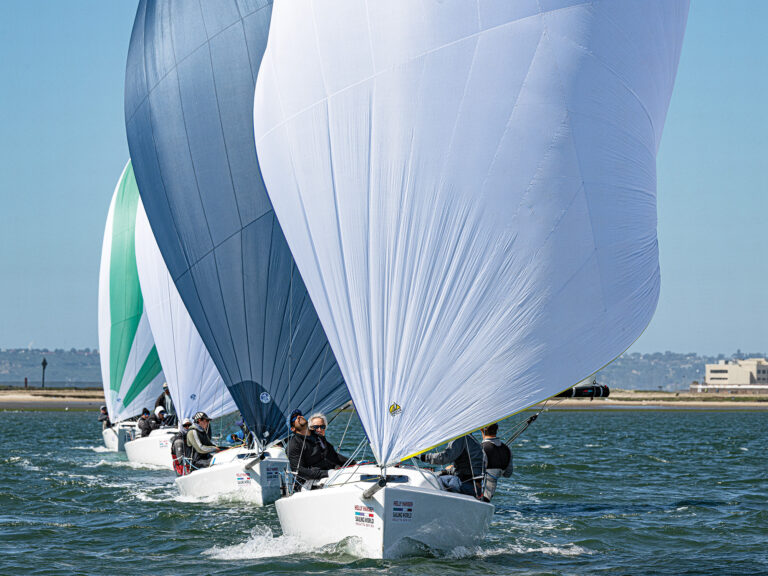When an Olympic sailing heavyweight says ‘I think going to the Olympics is rather like climbing an Everest’, you get a feel for the commitment and determination required to reach the top.
The Olympic Games is the pinnacle of sailing, also reaching an unrivalled number of sports fans. Stars are born on the journey through the Youth Sailing World Championships and into the Sailing World Cup, but they come of age at the Olympics. It’s where dreams come true, heroes are made and sailors become national property.
The narratives within each Olympiad are some of the most compelling you will find anywhere, and when even getting there is described as climbing the world’s highest peak you know the main event will be a blockbuster.
“I talked to a well-known mountaineer recently… he climbed Everest and he was like, you get down from the mountain and you look at it and think, can I go somewhere even higher or even more challenging,” explains Jonas Høgh-Christensen, London 2012 silver medallist and two-time Finn Gold Cup winner. “To me that is the same thing: I look at the Olympics and it is the biggest challenge you can have in sailing.
“Going to the Olympics is like climbing one of the great peaks. It’s what keeps drawing me back and going for the Games. There are times that you are going for a run and it’s raining and freezing but you just have to keep on up the mountain. It is physically tough to keep doing this every day, but everybody wants to try to win an Olympic gold medal, it is our own particular Everest.”
Høgh-Christensen faced up to his mountain at the 2012 Olympic Games. He famously battled Great Britain’s Ben Ainslie in one of the most gripping contests of London 2012. One was aiming to become the most decorated sailor in Olympic history, the other was aiming to make existing record holder and fellow Dane, Paul Elvstrøm, proud.

In front of a capacity crowd in Weymouth it was who dares wins in the Medal Race with the victor etching their name in sports history. One of the great Olympic battles ensued and it was Ainslie who pulled in all of his experience to fend off the Dane to become king.
Høgh-Christensen was left slumped in his Finn, the onboard camera showing an immediate, live impact as the disappointment hit. Ainslie’s legacy was secured as he bowed out of Olympic sailing, but for Høgh-Christensen there was unfinished business.
Thinking his time was up after London 2012 he stepped away from Olympic sailing, returning to work in the music business. But having reflected more on his achievements, the lure of the mountain was too great. The need to go somewhere higher, continue the challenge, saw Høgh-Christensen make a comeback at the Santander worlds in 2014 and now he is a serious contender for Rio 2016.
In Rio, though, the Great Dane has a new foe. Stand up, Giles Scott, heir to Ainslie’s throne. Scott heads into the Games as the unprecedented favourite to continue Great Britain’s remarkable Finn story. Ask those in the know and Giles Scott is the man who ‘should’ become the new king of the men’s heavy singlehander.
Høgh-Christensen and Scott will be part of a 23-boat Finn fleet in Rio and overall, two of 380 sailors from 66 nations competing in Brazil. Each individual will have set a target and whatever that individual target is it’s still going to take the effort required to summit Mount Everest to get there.









